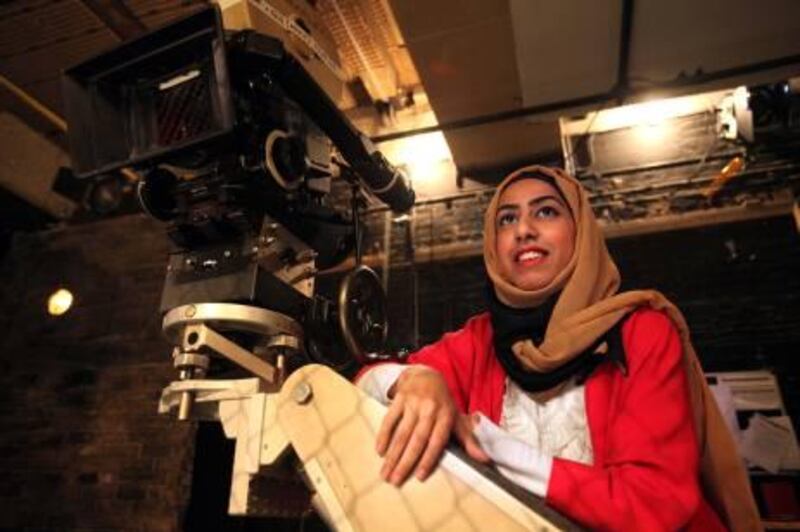Among the most cosmopolitan of world cities, London is home to 8 million people, of whom only 5 million were born in the UK.
On the busy streets of the multicultural British capital, it can be a challenge to remember where you come from.
This struggle to maintain identity is the focus of a documentary by Mariam al Serkal, 27, who is studying a master's in film-making at London Film School.
London in a Headscarf charts Ms al Serkal's journey of self-discovery, and records her decision to study abroad and the issues she faced in maintaining what makes her uniquely Emirati.
"When I came here and saw the social life of students who go to pubs for a drink, I felt in that moment that I had to make a decision: be part of this social life or stick to what I believe in," she says.
"I thought it would be easy to lose track of who I am when abroad. Instead, I became more attached to my culture, religion and country - more than I would have back home."
Of 14 concepts vying to be produced, her documentary was chosen as the best by a panel of BBC producers and London Film School tutors. Now her project is in the final editing stages.
A visiting professor for documentaries at the London Film School described Ms al Serkal as an outgoing and enthusiastic woman, and says her idea was welcomed for its uniqueness.
"The making of such a film is actually very useful; not only for Mariam and people from her background, but for us westerners," says Prof Peter Gordon.
"I think it helps us understand the cultural differences and how young women like Mariam are trying to accommodate their own culture while abroad."
Ms al Serkal, who worked for Dubai TV for six years before deciding to do her master's, says very few film-makers tell stories that reflect Arab society.
"There are a lot of stories to be told that have not been seen on the screen, especially from an Arab culture point of view," she says.
"It was time for me to step up and study film-making and get a chance to tell these stories."
Ms al Serkal also approached the Ministry of Higher Education for contact details of other Emiratis studying in London to include in her documentary. Of the 60 e-mails sent out, she received only four responses.
One of her interviewees is an Emirati based in Dubai who decided to not reveal her face or identity in the shoot.
The woman, from a conservative Bedouin family, decided to remove her hijab in London. Her family does not know.
"My family are very strict. When they come to visit, I have my abaya ready and my sheila ready," she says. "I wear it so that they can be happy.
"It's not that I don't dress appropriately [when they are not there], it's just that I don't want to wear it because it's not me."
Ms al Serkal says it was not easy to get people to comment, or to get frank answers from those who were willing to talk.
"It was difficult to get information out of Emiratis because we are very diplomatic and not honest about what we believe in, especially when the camera starts rolling," she says. "The women tended to be more outspoken and say what was on their minds."
Ms al Serkal is in talks with the London Mena Film Festival to show her work in October. But she says showing this documentary could be bittersweet.
"I am coming out, showing my face and my family name," she says. "I know what I am doing is taking a risk that I may not get married. But it's a price I have to pay if I want to send this message."
Hessa al Midfa, Ms al Serkal's mother, says she supports her daughter's choice to study abroad, adding she did the same as there were then no universities in the UAE.
"Universities in the UAE lack in media training, as we're still crawling in that department," Mrs al Midfa says. "This will give her many skills and will be an advantage for the country when she comes back."
As for her daughter's marriage prospects, she says: "A man who thinks that women who study abroad are not viable for marriage is a man who is not mature in thoughts and has little experience in life.
"We would not want someone with such thinking for Mariam."
[ aalhaddad@thenational.ae ]






